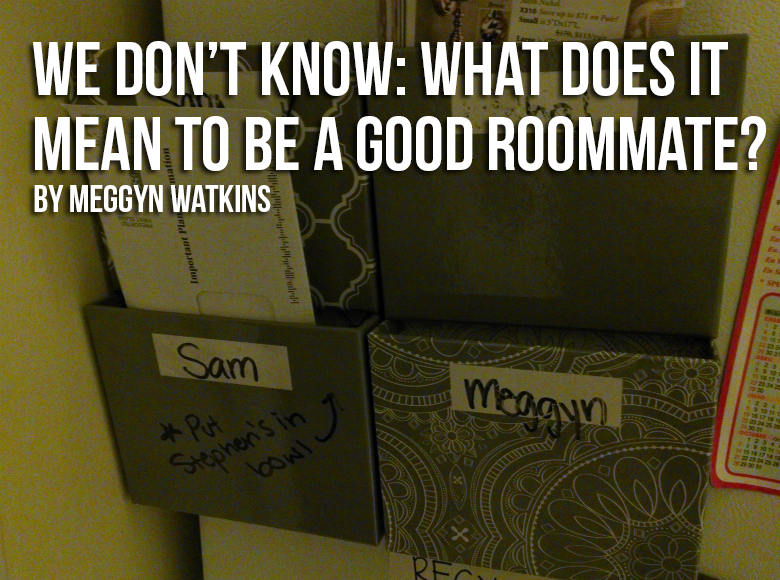Damn, waking up in the morning is hard. And with this weird, non-stop buzzing noise.
There’s like… static… and voices? …I’m not in bed.
I’m face down. On a very hard, very cold floor.
My face is wet? Oh… it’s blood. My blood.
—
My mother was born with a heart defect. Just a small flutter in her heart… it was something she had lived with her entire life. Then, last summer, “atrial fibrillation” became a noun in our world, “stroke” was a concern, things like “end of life” documentation arrived, and I was signing papers about being her “medical advocate.”
It was terrifying. But open-heart surgery could not only avoid worst-case scenarios for the future, but also give her a better quality of life in the here-and-now.
I tried not to cry. I tried to be brave. I encouraged her to be optimistic, to sit down and talk through the pros and cons of pig versus bovine versus mechanical valves, to consider whether she should go on the trip of a lifetime overseas before surgery and risk an atrial fibrillation attack away from hospitals or wait until after the surgery when she was possibly relearning how to live with a valve.
There was a lot of talk, a lot of anxiety, a lot of stress, and a lot of love.
…I wasn’t expecting a lot of debt from my own trip to the ER.
The day of my mom’s surgery, my sister and I woke up before dawn, picked my mom up, and brought her into the pre-surgery prep wing. The entire morning was ramping up to be pretty anticlimactic overall: my sister and I were treated to an hour and a half of sitting in the waiting room with mom, without mom, with paperwork, without anything to do except browse reddit and play mobile apps.
Finally, the monotony broke: a nurse at the hospital found us in the waiting room and invited us to come back to say goodbye before my mom went under!
She led us back to our Mom’s room and the other pre-op nurses ran to find us a couple chairs in the otherwise-empty room. The first nurse jovially chit-chatted with us, and then proceeded to shove the most massive catheter into my mother’s forearm. No warning.
As possibly the most squeamish person alive, it only took about 1.5 seconds for me to hit the floor.
I woke up on the floor next to my mother’s pre-op bed. Through the forest of swarming nurses’ appendages, I could just barely see her over the edge of the bed but she kept looking away from me. The nurses wheeled me away on a stretcher to the emergency room, as I deliriously screamed how sorry I was… over and over and over. At the time, I was terrified that my accident had stressed her out and caused her to undergo life-threatening surgery in a poor physical and mental state.
My sister stayed behind with our mom until she was wheeled into surgery, and then Sara joined me in the ER: laughingly, she reassured me that our mom was on so much morphine that she probably didn’t realize I was gone. I was glad to know I wasn’t going to be the cause of her hypothetical death, but seriously distraught that I didn’t have the opportunity to say goodbye. My mother was unconscious for the next 26 hours: I alternated between pacing the waiting room with tears in my eyes and curling up in an exhausted heap on the floor, as her initial surgery dragged to an interminable seven hours. The post-op offered no respite, as it devolved into eight hours of platelets platelets more platelets until I made the decision to sign the authorization papers for an emergency find-the-leaking-hole-in-her-heart surgery.
She made it through the night. A week later, she made it home. She was alive, and she was healthy. Everything was finally okay.
—
It was at this point when I stopped focusing all my energy on my mom and started considering my bank account. I entered this optimistic state of denial: the hospital wouldn’t possibly send me a bill for an ER visit they caused themselves! They know the nurse brought me to an off-limits area. I am definitely not liable for this.
Imagine my surprise and disappointment when the bill finally materialized in my mailbox: approximately $3000 for the hospital, $300 for the doctor, and $200 for various labs and tests. As a recent college grad sans-benefits, my measly $100-bucks-a-month health insurance wasn’t doing me any favors. My friends and family encouraged me to pursue litigation. So, I scoured the firms in my area, called some malpractice numbers, and waited for someone to deliver me from this obviously unfair burden. I’m definitely not a litigiously minded individual, but I just couldn’t afford that bill. So I waited. And waited. No one was calling me back.
Finally, a lawyer took pity on me. Not that he swooped in and won my case: he took just enough pity on me to spend 20 minutes explaining why the legal system was not on my side, and explained my alternative options. After drowning in anxiety for two weeks, the dose of transparency was a very welcome breath of fresh air.
What he explained was that, thankfully, the half-inch lightning-bolt scar newly gracing my browline could not be considered “disfigurement.” That was the good news. The bad news was that, without disfigurement, there was no way that I would be awarded a settlement large enough for a lawyer’s cut to be worth his or her time (not including the thousands it would cost to hire an expert witness to testify about nurses’ standard of care). The numbers simply didn’t crunch.
He did encourage me to keep looking for lawyers. My friends even suggested finding a pro bono lawyer just to get the bill waived. Or maybe someone appointed to me through my local community. But by this point, I was so overwhelmed and disheartened, I just couldn’t bother. In the space of two weeks, I received three or four new copies of my bill. You know: just in case I had forgotten. Thanks, hospital!
With yet more encouragement from friends and family, I looked into the last-ditch attempt the lawyer had suggested on the phone—only to be used if I could not find any other legal representation. I called the hospital’s main line and asked for the Risk Management department. This is how I met Tim.
Tim was so kind… so sympathetic… so absolutely impotent. For three weeks, I was talking with Tim every few days or so, with him updating my files and forwarding my messages to the Billing office, awaiting the verdict that never seemed to come. Finally, frustrated, but not wanting to sacrifice the “pity me” persona that I’d developed with Tim, I asked if perhaps I could call this mysterious Beatrix woman from Billing who never seemed to receive Tim’s messages on my behalf.
Magically, everything changed.
Later that afternoon, Beatrix called me. Something, something, something, no indication of malpractice in my records, something, something, 20% discount. “Hold up,” I said. “I appreciate any discount possible… But, obviously there is no indication of malpractice in my records: my doctors in the ER were wonderful. You know it was my mother’s nurse who did this to me, right?”
Nope, she had no idea. Thanks for passing along the story, Tim.
My BFF from Billing called me back the very next morning: the hospital wasn’t admitting fault, but Beatrix verbally tiptoed her way through an explanation that the hospital bill would be waived ($0 owed), the physician bill would be discounted 50% ($150 owed), and the lab costs were the only things I had to pay in full ($200 owed).
In the end, the check I wrote was only 10% of the cost of my original bill (not including the price of the tears, sweat, and undiluted stress that emanated from me during those months). But finally, there were no more Tims to fight, no more Beatrixes to convince. And my faith in the goodness of human nature was not completely destroyed.

Photo by Sara Slattery






